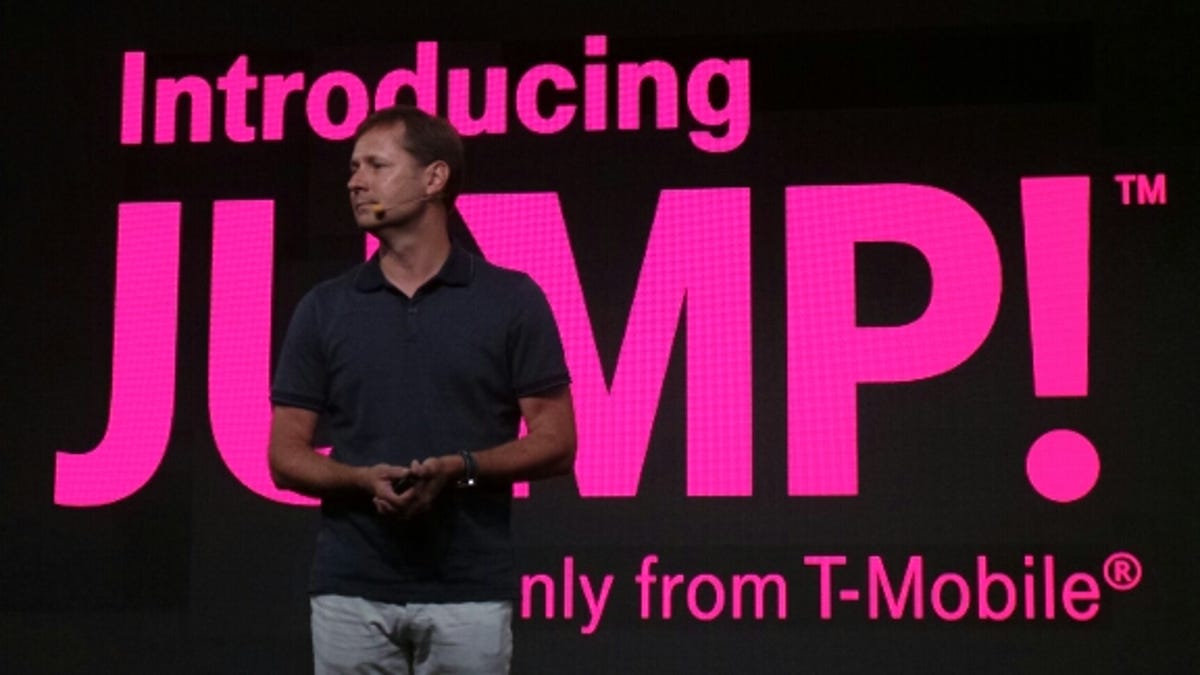T-Mobile: We're more than just the unlimited carrier
Carrier executives downplay the importance of unlimited, even as they insist on sticking to the offering.

T-Mobile downplayed the importance of unlimited data, even as it reiterated its intent to stick with the offering.
During an investor conference on Wednesday, Chief Marketing Officer Mike Sievert said the offering was "part of a larger value proposition."
"We have an unlimited offering, but it's not the reason for our being," he said.
Sievert compared T-Mobile's pitch to consumers -- which encompasses its "Uncarrier" strategy of no contracts, early upgrades, and unlimited data -- to Sprint's strategy of tying itself to unlimited data.
"A competitor bet the farm on unlimited, and that's all it is," he said. "We're not stuck...as the unlimited carrier. That's a bad place to be."
Sievert's comments come a day after Verizon CEO Lowell McAdam, speaking at the same conference, claimed that unlimited data plans were unsustainable. While the big two carriers have moved away from unlimited plans, both Sprint and T-Mobile have pushed them in an effort to win away customers.
Sievert said T-Mobile would stick with unlimited, but it wasn't a wholehearted statement. He added there were opportunities to make more money off of the increased need for data down the line.
Sprint, in contrast, essentially has gone all-in with its unlimited offering, guaranteeing to customers that they will keep their unlimited plan for life.
Of the national carriers, Sprint has been among the most vulnerable with continued subscriber losses -- many stemming from the shutdown of the Nextel network. But Sievert and T-Mobile Chief Technology Officer Neville Ray said T-Mobile had its eye on AT&T as the larger target.
Sievert slammed AT&T, noting that it has the largest group of dissatisfied customers.
"They combine two things: being big and being bad," he said.
AT&T CEO Randall Stephenson acknowledged yesterday feeling pressure on the "price-sensitive" segment of consumers. Sievert said he agreed with that assessment, but inserted that he believed the price-sensitive segment includes the lower 90 percent of AT&T's base, making a point about T-Mobile's ability to nab both high- and low-end customers.
Ray, meanwhile, noted that T-Mobile has made it easy for AT&T customers to jump ship to T-Mobile because they can use their existing phones.
T-Mobile Chief Financial Officer Braxton Carter said that the company was ready to go at it as a standalone business. But he also expressed a willingness and openness to participate in future industry consolidation. While he noted that the government would prefer four national carriers in the industry, he made a case for a larger No. 3 player -- something formed through a merger between T-Mobile and Sprint. And he noted that a new fourth player could emerge in the industry.
In the meantime, T-Mobile is relishing its ability to enable change in the industry, Sievert said.
"We're positioning ourselves as a champion of change in an industry that needs change," he said. "We're taking credit for that.
He noted that while competitors may attempt to copy its moves, they still can't match the overall experience. An early upgrade program from the likes of Verizon or AT&T, for instance, is just a single component and one that doesn't compare to T-Mobile because it is costlier and doesn't include the rest of the "Uncarrier" strategy.
He noted that companies like Verizon will tell consumers the benefits of an early upgrade program and come to a conference like this one and brag about how it's about taking more money from customers.
"What we found was we've designed our strategy so that if they respond to one point, they're missing the point," he said.

